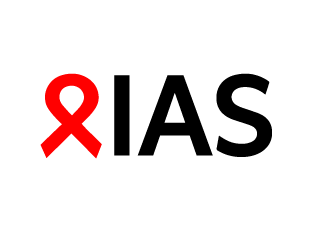Thank you for your interest in CCO content. As a guest, please complete the following information fields. These data help ensure our continued delivery of impactful education.
Become a member (or login)? Member benefits include accreditation certificates, downloadable slides, and decision support tools.

Internal Medicine Physician
HIV/Sexual Health Specialist
AIDS Healthcare Foundation (AHF) Medical Clinic
Atlanta, Georgia
David Malebranche, MD, MPH, has disclosed that he has received consulting fees and fees for non-CME/CE services from Gilead Sciences and ViiV Healthcare.
I recently conducted a telehealth visit with a patient I had never seen before. The patient was a Black man in his 20s with employer-sponsored health insurance. He is living with HIV, is virally suppressed on antiretroviral therapy, and has a CD4+ cell count in the normal range. I asked him what brought him to our visit that day.
“I was just diagnosed with COVID-19,” he responded.
Looking at his chart, I saw that his BMI was >30 kg/m2 and he was taking medications for hypertension, putting him at high-risk for disease progression.
“Have you been vaccinated?” I asked.
“Naw. The nurse practitioner kept riding me about it, but I’m going to wait and see.”
The patient mentioned that a week ago, he had gone to a local emergency department (ED) with coughing and mild shortness of breath. There, he was diagnosed with COVID-19 by a rapid test; his oxygen saturation and chest x-ray were normal, and he was sent home to isolate and self-treat.
Two days later, he didn’t feel any better, so he returned to the same ED. Again, his oxygen saturation was said to be normal (>95%), but this time his chest x-ray showed fluid in the base of his right lung. He reported that the doctors treated him with a dose of IV antibiotics and prescribed a week of oral antibiotics for a diagnosis of pneumonia. He was then given instructions to do jumping jacks at home, to follow up with his primary provider at our clinic, and to ask the primary provider about monoclonal antibodies for COVID-19.
So, there he was, sitting in front of me on a telehealth call at 5:40 pm on a Thursday night.
“How do you feel now?” I inquired.
“A little better,” he stated. But I could sense that he was downplaying his symptoms. I could hear his dry cough and see his ashen appearance through the computer monitor, and they were telling a different story. As a Black male physician who treats other Black men frequently, I’ve seen this scenario play out far too many times.
Unfortunately, I find that racial health inequities in the United States are as American as baseball and apple pie. Whether diagnosed with cancer, high blood pressure, diabetes, or HIV, melanin-rich persons of African or Latin ancestry suffer disproportionate rates of adverse health outcomes. COVID-19 is no different in this regard, and the COVID-19 pandemic has only served to further expose how inequitable social contexts lead to inequitable health outcomes. High housing density, lack of insurance, transportation issues, and low-wage frontline jobs are just a few of the racial and ethnic social inequities that may lead to worse COVID-19 outcomes.
But what about medical bias? Studies show evidence of biases against melanin-rich persons by healthcare professionals in pain management, birth control, treatment of cardiovascular disease, treatment of HIV, and likelihood of offering of HIV pre-exposure prophylaxis to patients with HIV, to mention a few. When considering COVID-19 outcomes such as rates of diagnosis, hospitalizations, ICU admissions, and even deaths, we are woefully behind in examining the ways that racial biases affect COVID-19 testing and treatment offered by healthcare professionals.
I sent the young man to a different ED this time. He was not happy with my advice, but I think he knew in his heart this was the best thing to do. He called me to give me an update.
“They’re admitting me to the hospital,” he later told me. “They are giving me remdesivir and steroids. They say I have double pneumonia on the chest x-ray.”
He was treated for COVID-19 in the hospital for 3 days and then discharged to home. He told me he felt much better and didn’t realize how bad he was feeling until he received treatment and began to improve. That was 2-3 months ago.
I spoke with the nurse practitioner who is his primary care provider just the other day; she told me he is doing fine, but he still doesn’t want to get the COVID-19 vaccine. It made me wonder if any initial medical distrust he may have had was reinforced by his experience at the first ED. Was this a factor in his reluctance to get the vaccine?
Why was this insured patient with multiple risk factors for disease progression sent home twice from the first ED without being offered monoclonal antibodies or even observation? Could racial bias have played a role? It certainly could have, but it is difficult to assess what’s on the hearts and minds of medical personnel as they triage and treat diverse patient populations during this pandemic, much less measure it scientifically. What is not in doubt is that there are racial disparities in COVID-19 outcomes, and we must recognize and overcome racial inequities and biases going forward―the collective health and well-being of our communities depend on it.
Your Thoughts?
Do racial biases, conscious or unconscious, affect which treatments are offered to patients from Black, indigenous, and people of color communities? What have you observed in your practice setting? In your opinion, how should we overcome racial biases? Answer the polling question and join the conversation by posting in the discussion section.


You are now leaving the CCO site. The new destination site may have different terms of use and privacy policy.